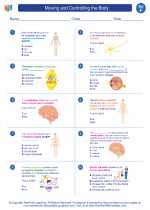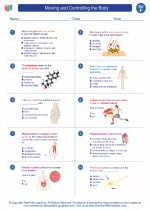Pituitary Gland
The pituitary gland, also known as the master gland, is a small, pea-sized gland located at the base of the brain. It is often referred to as the "master gland" because it plays a crucial role in regulating various bodily functions by producing and releasing hormones that control other endocrine glands and many other bodily functions.
Anatomy of the Pituitary Gland
The pituitary gland is divided into two main parts: the anterior pituitary (adenohypophysis) and the posterior pituitary (neurohypophysis). The anterior pituitary is made up of glandular tissue and secretes several hormones, while the posterior pituitary is an extension of the brain and stores and releases two important hormones produced by the hypothalamus.
Functions of the Pituitary Gland
The pituitary gland plays a vital role in regulating various bodily functions through the secretion of hormones. Some of the key functions and hormones produced by the pituitary gland include:
- Growth Hormone (GH): Regulates growth, metabolism, and body composition.
- Thyroid-Stimulating Hormone (TSH): Stimulates the thyroid gland to produce thyroid hormones.
- Adrenocorticotropic Hormone (ACTH): Stimulates the adrenal glands to produce cortisol and other stress-related hormones.
- Prolactin: Stimulates milk production in women.
- Luteinizing Hormone (LH) and Follicle-Stimulating Hormone (FSH): Regulate the reproductive system in both males and females.
- Oxytocin and Antidiuretic Hormone (ADH): Produced in the hypothalamus and stored in the posterior pituitary, these hormones regulate water balance, uterine contractions during childbirth, and milk ejection during breastfeeding.
Importance of the Pituitary Gland
Due to its role in regulating various bodily functions, the proper functioning of the pituitary gland is essential for overall health and well-being. Imbalances or disorders related to the pituitary gland can lead to a wide range of health issues, including growth disorders, infertility, thyroid problems, and adrenal insufficiency, among others.
Study Guide
When studying the pituitary gland, it is important to focus on the following key points:
- Identify the location and anatomical structure of the pituitary gland.
- Understand the functions of the anterior and posterior pituitary and the hormones produced by each part.
- Explain the importance of the pituitary gland in regulating various bodily functions and the consequences of its dysfunction.
- Recognize the interconnectedness of the pituitary gland with other endocrine glands and its role in maintaining homeostasis.
- Discuss the impact of pituitary gland disorders on human health and potential treatment options.
It is also helpful to create visual aids such as diagrams or flowcharts to illustrate the connections between the pituitary gland and other endocrine glands and to understand the feedback mechanisms involved in hormone regulation.
Remember to review and understand the specific functions of each hormone produced by the pituitary gland and their effects on target organs and tissues throughout the body.
By mastering these key points, you will have a comprehensive understanding of the pituitary gland and its significance in maintaining overall health and well-being.
.◂Science Worksheets and Study Guides Sixth Grade. Moving and Controlling the Body

 Worksheet/Answer key
Worksheet/Answer key
 Worksheet/Answer key
Worksheet/Answer key
 Vocabulary/Answer key
Vocabulary/Answer key
 Vocabulary/Answer key
Vocabulary/Answer key
 Vocabulary/Answer key
Vocabulary/Answer key
